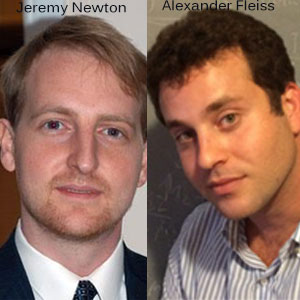THANK YOU FOR SUBSCRIBING

Legal Knowledge Management and the Rise of Artificial Intelligence
Christopher Zegers, CIO, Lowenstein Sandler LLP


Christopher Zegers, CIO, Lowenstein Sandler LLP
Sue, partner at BigLaw LLP, has made a career of surpassing her clients’ expectations. This is no trivial task. More often than not, Sue’s clients ask her to develop a strategy and budget to solve problems they cannot clearly define. From the limited information provided, Sue must anticipate the possible directions her strategy may go and budget accordingly. She may not be sure if she will need depositions from 2 or 20 parties, require assistance from specialists on her team, or require access to costly legal analysis. She may not be sure her client will benefit financially from her assistance once her bills are paid. So what is her “secret sauce?” Gumption, for sure; faith that her past experience properly informs her future decisions,useful historical data she and her firm has amassed, and useful analytical data provided by third parties and publishers.
Law Firm Historical Data
Law firms have had mixed success with capturing historical data that is actually usable. They did a good job of applying their traditional paper-based records management practices into digital form in order to secure a copy of all documents for and correspondence with their clients, by utilizing document management systems. Early systems went as far as tracking key metadata for future analysis; but over time it was discovered that accuracy took back seat to expediency.
Metadata typically remained overly generic, when filing a document or email, if the default value for metadata field “Document Type” was General, it most often remained General, not Memo, Brief, or Correspondence. When opening a new matter for a client, few took the time to drill down through the long lists of matter types and sub-types to accurately categorize the work for later analysis.
First attempts to address the fact that it takes more than technology and available metadata fields to institutionalize the creation and curation of good data involved hiring of attorneys as “knowledge managers” who analyzed and categorized historical data, retroactively.
The principles of knowledge management become more intrinsically entwined with how attorneys work
With the rise of artificially intelligent systems and the explosion in data volume, the opportunity and expectation is for AI to do more of what current knowledge managers do, as well as exceed them with more complex predictive analysis. The current trend is to integrate project management and good-data capture at matter inception and throughout the life of the matter, transforming the knowledge manager into a more proactive project manager. This is a dramatic process change for attorneys and is still in its nascent stage.
Analytical Data
Laws, statutes, judgements, briefs, motions, administrative codes, and opinions have been recorded and published in the U.S. since the country was formed. Legal precedent is critical to the decisions and strategies of attorneys. The enormous volume of legal data generated in the courts saw a rise in private publications offering the data in summary form, in more digestible formats, and with secondary analysis by legal experts. Attorneys often rely on secondary analysis to expedite their research.
The new era of legal analytics focuses on attorney strategies and success. Startup companies looking to disrupt the LexisNexis and West duopoly on legal information are offering variations on what is being referred to as “moneyball for lawyers.” Lex Machina crunches court data to inform attorneys where best to litigate patents. Ross Intelligence applies IBM’s Watson to enhance bankruptcy practices. Ravel Law offers judge and case analytics enhanced by dynamic data visualization tools, and has just announced a partnership with Harvard Law Library’s “Free the Law” project to create a free and comprehensive, searchable database of U.S. case law. For a fee, Ravel’s advanced analytic tools will be available for use against this database.
A recent study by legal consultancy Altman Weil indicates that 35 percent of law firm leaders polled foresee junior associates being replaced by AI systems like IBM’s Watson. Some thought-leaders have been quick to respond that just as doctors and engineers have adapted their practice to new technologies, attorneys will not be replaced as much as the type of work performed will change to better utilize these systems. They posit “Augmented Intelligence” as a more accurate description than artificial intelligence.
When considering a future where legal matters are managed more like business or engineering projects, and legal research involves more number-crunching like financial analysis, it is clear thatthe way in which attorneys must work is changing. The principles of knowledge management become more intrinsically entwined with how attorneys work. The traditional KM goal of retaining institutional expertise and knowledge becomes more easily attainable. Faced with new datasets, attorneys must become more adept at assessing not just final results delivered by AI, but the AI systems themselves.












